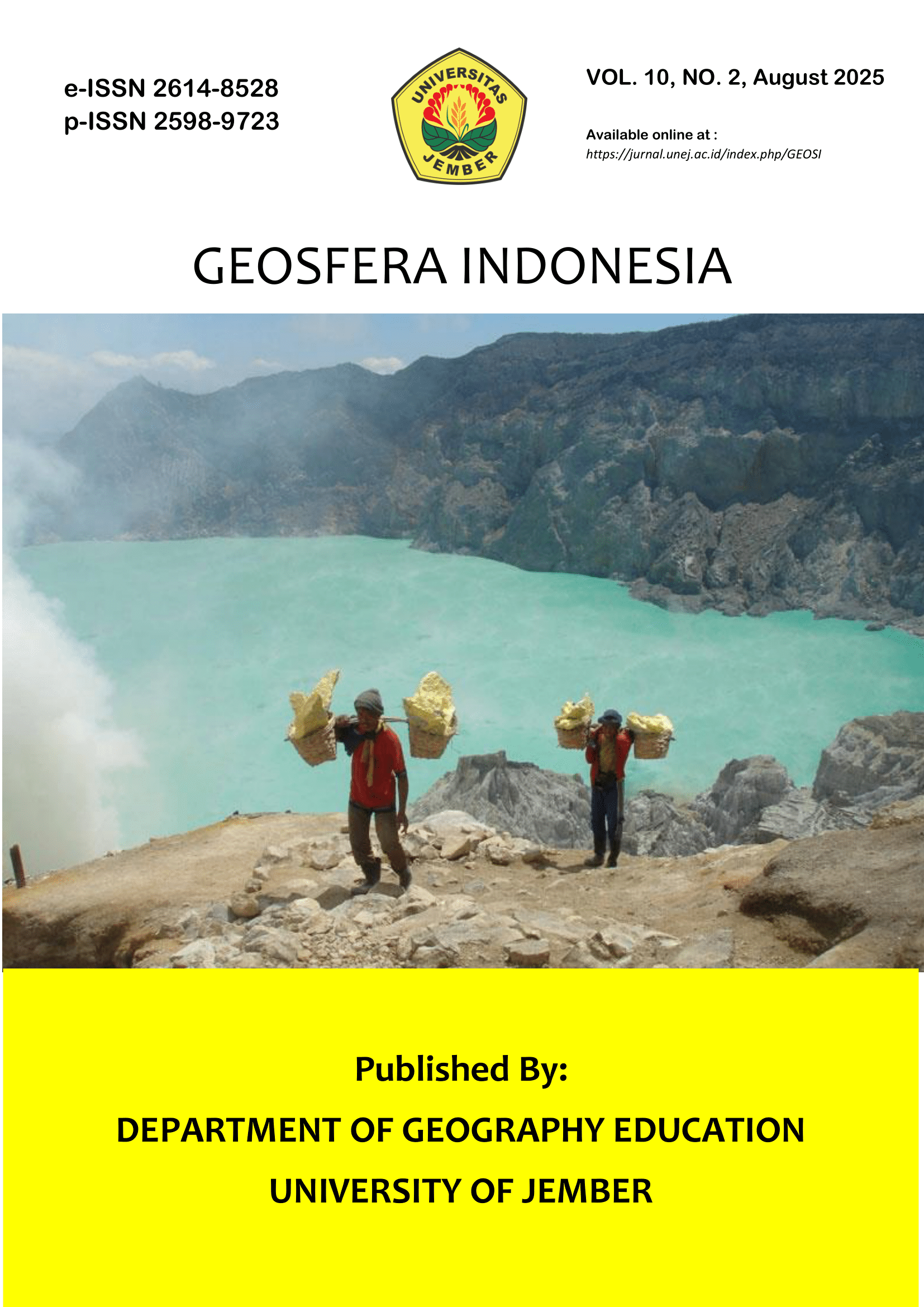The Impact of Residents’ Involvement in the Spatial Transformation of Inner-City Slums in Ibadan
DOI:
https://doi.org/10.19184/geosi.v10i2.53700Keywords:
Urban transformation, Community Participation, Inner-city Slums, Sustainable Urbanism, Dilapidated infrastructureAbstract
Residents' active participation is crucial in influencing the transformation of inner-city slums, especially in fast-growing cities like Ibadan. Recognizing this role is crucial for developing inclusive planning strategies that effectively address the actual needs of the urban poor. This research examined the impact of community involvement on urban changes in Ibadan’s core areas, Oyo State, Nigeria, from 1990 to 2020. A structured survey of 552 residents from selected slum communities measured their participation in city transformation efforts, focusing on social and environmental improvements, resource allocation, the effectiveness of interventions, and challenges to slum redevelopment. Analysis using the Social Sciences Statistical Package (SPSS) showed that residents’ participation had limited influence on revitalizing Ibadan’s inner-city slums. The primary participation methods were consultations (35.7%) and incentives, such as gifts (27.2%). Despite efforts to involve communities in planning, major obstacles persisted, including corruption, bureaucratic delays, political interference, mismanagement of funds, limited capacity, poor coordination, delays, and insufficient funding (30%) of urban renewal funds were reportedly misused. Persistent challenges such as degraded infrastructure, poor socio- environmental conditions, and ineffective transformative initiatives remain prevalent, with a Slum Deprivation Index (SDI) indicating high levels of residential and environmental deprivation (RED) and water, sanitation, and hygiene (WASH) deprivation across the study areas. The study concludes that comprehensive and inclusive participation is essential for sustainable urban development. It contributes to ongoing discourse on the effectiveness of spatially and politically driven participatory approaches in urban settings, advocating for policies that prioritize periodic urban renewal and robust community involvement.
Downloads
Published
How to Cite
Issue
Section
License
Copyright (c) 2025 Geosfera Indonesia

This work is licensed under a Creative Commons Attribution-ShareAlike 4.0 International License.




